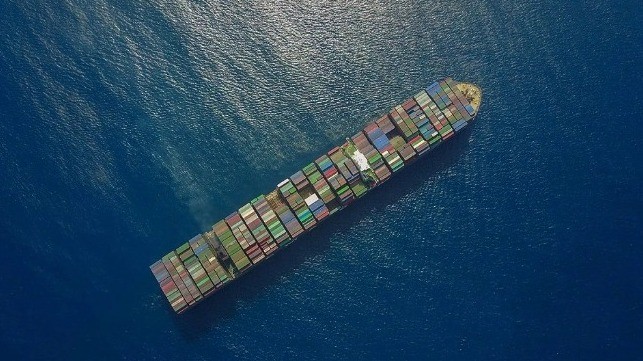UN Launches Tool for Global Brands to Protect Seafarer Human Rights
A collation of United Nations organizations joining with international labor leaders and members of the shipping community launched a new due diligence tool for global brands to use to ensure that they are protecting the human rights of seafarers across their supply chains. The Human Rights Due Diligence Tool for cargo owners and charterers seeks to expand on industry-led initiatives such as the Neptune Declaration, which attached over 800 global companies committing to direct businesses and specific cargo shipments to carriers that are proactively taking steps to protect their seafarers.
The wide-ranging human rights checklist was issued to businesses engaged with the maritime industry as part of a joint initiative by the UN Global Compact, the UN Human Rights Office, the International Labour Organization (ILO), and the International Maritime Organization (IMO). The tool is also supported by the Sustainable Shipping Initiative, the World Economic Forum, the Global Maritime Forum, the Ethical Trading Initiative, and The Consumer Goods Forum. It is anticipated that many of the global brands that are members of the Consumer Goods Forum, including Coca-Cola and Nestle, will adopt the tool, along with the companies such as Unilever that were earlier adopters of the Neptune Declaration.
"The Consumer Goods Forum welcomes this new tool to urgently support the safety, health, and wellbeing of those working at sea. As our Board of Directors wrote to the UN Secretary-General last fall, not only has the Covid-19 crisis disrupted the maritime industry's contribution to global supply chains, but it has also inadvertently created a modern form of forced labor. This is an unacceptable situation, and we support the call for all actors across sectors to work collaboratively and quickly to resolve it," said Wai-Chan Chan, Managing Director of The Consumer Goods Forum.
While the impetuous for the effort was an outgrowth of the pandemic and the thousands of crewmembers that were stranded or denied access to work over the past year, the UN agencies hope the new guidance will help ensure that the working conditions and human rights of seafarers are respected and comply with international standards. The new guidance aims to ensure that seafarers have their rights safeguarded in areas such as physical and mental health, access to family life, and freedom of movement.
“The impact of the COVID-19 pandemic has highlighted the fragility of global supply chains as seafarers continue to endure tremendous, and yet largely invisible, hardship and suffering,” said Sanda Ojiambo, Executive Director and CEO of the UN Global Compact, a UN initiative focused on encouraging businesses and firms worldwide to adopt sustainable and socially responsible policies. “The mental and physical wellbeing of seafarers must be a priority and this tool is an important step in building awareness of how to address human rights abuses in the maritime sector. It sends a powerful message of the importance of incorporating maritime workers in due diligence mapping to ensure that adverse human rights impacts are identified, prevented, mitigated, and addressed.”
The voluntary program supplies the companies contracting for the transportation of cargoes the questions and considerations to be explored before engaging services. It highlights the common human rights issues for seafarers and encourages companies to engage in a dialogue with the charterer or operator before hiring transportation services.
The UN organizations highlighted the continuing concern that seafarers are being forced to work beyond their contracts or the maximum 11-month period established in the Maritime Labor Convention. Currently, they believe that 200,000 crew remain at sea beyond their contracts and said they fear the number could return to the peak levels of 400,000 seafarers at the height of the crew change crisis in September 2020. The UN agencies also expressed strong concern at reports that companies engaged in international trade are avoiding chartering vessels where a crew change is due, with some demanding “no crew change” clauses in charter party agreements.
“The recent Suez Canal incident has reminded governments and the markets just how important global shipping is to the supply chains,” said Guy Platten, International Chamber of Shipping Secretary General, and one of the organizations that contributed to the development of this new program. “Seafarers are continuing to work to maintain global trade through exceptional circumstances, and the Suez incident has only exacerbated the already dire crew change crisis. Seafarers must not be forgotten now the canal is open again, and we call on businesses to urgently adopt these important recommendations.”
The International Transport Workers’ Federation, the International Chamber of Shipping, the Institute for Human Rights and Business, the Rafto Foundation for Human Rights, and the OECD actively contributed to the development of the tool.
The UN Global Compact has made the tool available online and is distributing it to the more than 8,000 businesses that are involved with the organization. It is also anticipated that other organizations, including The Consumer Goods Forum, will be distributing it to their members along with a message of support for the use of the tool.
BY THE MARITIME EXECUTIVE 05-06-2021 07:18:04







Comments (0)